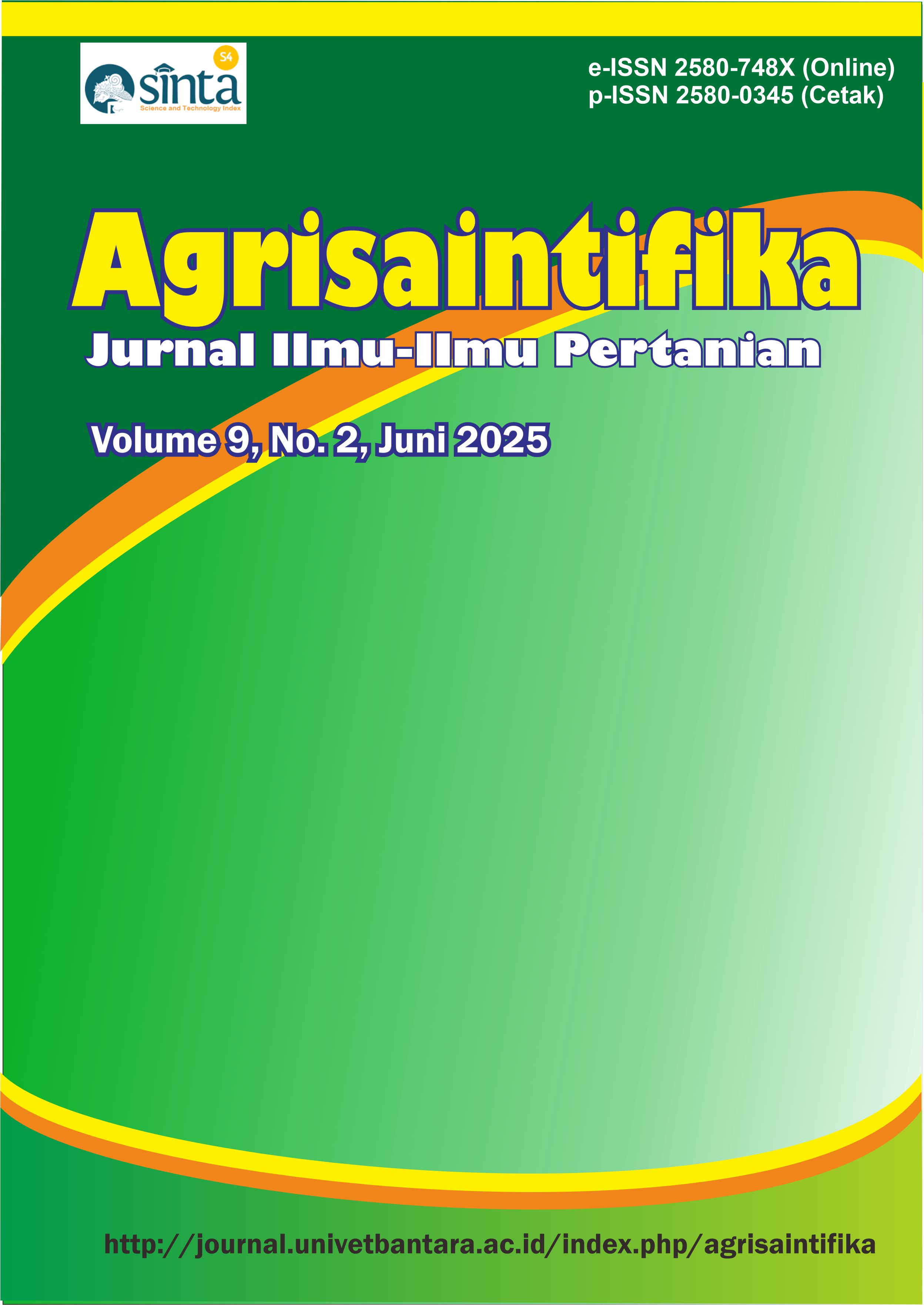EFFICIENCY OF LARGE RED CHILI FARMING IN CIBEUREUM VILLAGE, SUKAMANTRI DISTRICT, CIAMIS REGENCY
DOI:
https://doi.org/10.32585/ags.v9i2.6324Abstract
Red chili is a vegetable that is included in the horticultural commodities that are widely consumed by the community and results in high demand for red chili, so that its production must be optimized as much as possible. This study aims to determine the average value of the level of technical efficiency, allocative efficiency and economic efficiency in red chili cultivation farming in Cibeureum Village. January to October 2024 is the time when this study was carried out using a survey method and a sampling technique using proportional random sampling. Cibeureum Village is a research location located in Sukamantri District, Ciamis Regency with a total of 32 respondents from red chili farmers. Cibeureum Village was chosen as the research location because it is a central village producing red chili in Sukamantri District. This study uses the Data Envelopment Analysis (DEA) approach which uses input orientation with the assumption of the Variable Return to Scale (VRS) model. The production factors used are land, manure, seeds, NPK fertilizer, agricultural lime, herbicides, fungicides, insecticides, male labor and female labor. Based on the research results, the average values of technical, allocative and economic efficiency obtained for red chili farming in Cibeureum Village were respectively 0.978, 0.884 and 0.865, which means that the red chili farming business is not yet efficient technically, allocatively and economically.
Keywords: Economic Allocative Technical Efficiency, Farming, Red Chili
Downloads
Downloads
Published
How to Cite
Issue
Section
License
Copyright (c) 2025 Risa Amalia Solihah, Candra Nuraini, Riantin Hikmah Widi

This work is licensed under a Creative Commons Attribution-ShareAlike 4.0 International License.




